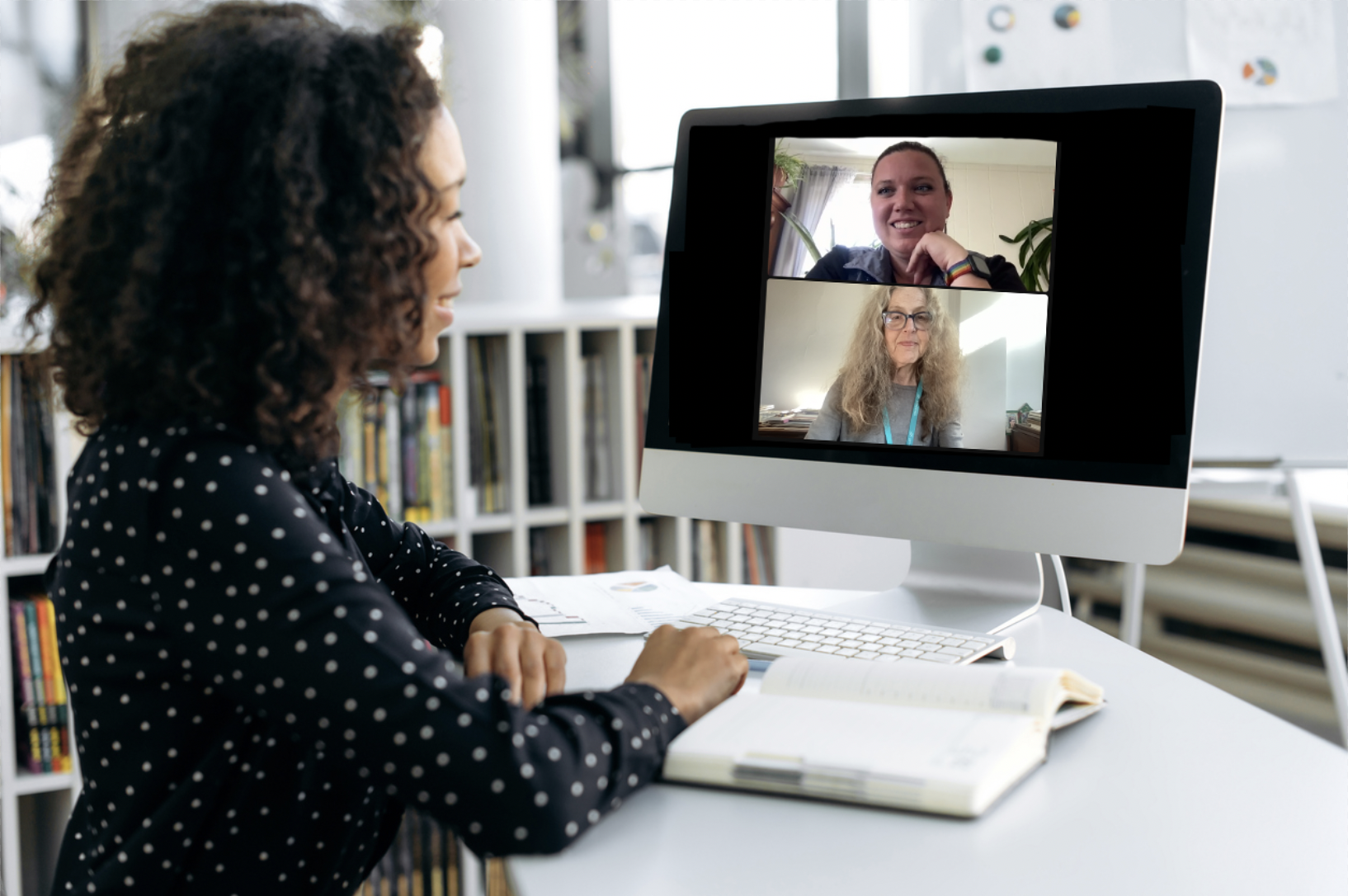When physical therapy assistant Heather Putnam first meets a patient with Parkinson’s disease, she also meets another important person — their caregiver. She almost always mentions HopeHealth’s support group for Parkinson’s caregivers.
“I’ll say, ‘This is a group of people who can relate to you. We’re there to talk things through with you, hear you cry, hear you laugh,” says Heather.
Heather facilitates the group along with volunteer Janet Isserlis, who lost her mother to Parkinson’s disease. Along with emotional support, the free group also offers practical tips and resources for anyone navigating Parkinson’s disease.
Here’s what to expect.
> Are you looking for support? Sign up for our Parkinson’s Disease Caregiver Support Group
Helping caregivers understand Parkinson’s disease
- The range of symptoms: “Parkinson’s is not the same for every person,” says Heather. “Some people may have difficulty walking, others do not. Some may get a tremor in their hand, while some may never experience that.” Members help each other anticipate and accept different possibilities of what their loved one may face.
- Common challenges: In a recent meeting, someone raised a question: “Why does my spouse keep falling backwards?” As a physical therapy assistant, Heather was able to offer the physical reason. Then the group shared tips, like lowering the person’s walker to shift their center of gravity. Knowing the cause and hearing from others really helped the caregiver process what their loved one was going through.
- The link to dementia: People with Parkinson’s have a higher risk of dementia. “That awareness is so important,” says Janet, whose mother experienced both conditions. The group offers insight into what to look for, and where to turn for dementia support.
> Related: From a dementia caregiver: 10 tips for self-care
Recommendations for Parkinson’s therapy, exercises and equipment
- How to make your home safer: Group members trade general advice, like reminders to install handrails and non-slip mats, along with specific instructions. “Recently, a member shared how they were able to build a custom ramp,” says Janet. “They share their strategies and their stories with each other.”
- Equipment recommendations: There are a lot of products out there to support people with Parkinson’s, from mobility aids to grip aids to utensils to help with eating. Heather’s expertise comes in handy. “If anyone is wondering about specialized equipment for Parkinson’s patients, I can answer those questions,” she says.
- Exercise ideas: Exercise can help alleviate Parkinson’s symptoms. The group is a great resource for suggestions — for example, where to sign up for Parkinson’s boxing classes. “They’ll bounce ideas back and forth: ‘Hey, this worked for us. Maybe it’ll work for you,’” says Janet.
- Therapy suggestions: Many providers, including HopeHealth and Heather herself, offer special Parkinson’s therapies like the LSVT BIG® and LSVT LOUD® programs. “I’ve been happy to hear everyone in group say, ‘Get your person in physical therapy and occupational therapy as soon as possible,’” says Heather. It can help with everything from balance and coordination to fine motor skills and swallowing — empowering people with Parkinson’s to live life to the fullest.
> Related: How we help Parkinson’s patients move and speak better
Emotional support for Parkinson’s caregivers
- Advice for respite care: “You can’t take care of someone 24/7. You have to take care of yourself too,” says Heather. Members have shared their personal approaches to finding respite care so they can take a few hours to themselves, from family members to hiring a paid caregiver.
- A community that understands: Understanding is a powerful source of comfort. For many members, just knowing there’s a regular meeting on the calendar helps with day-to-day life. Others have exchanged contact information so they can be in touch more regularly. “They’re so supportive of each other,” says Heather.
If you’re caring for someone with Parkinson’s disease who’s on HopeHealth’s service, or you live in Rhode Island or Massachusetts, you’re invited to join our free support group.
You’ll find valuable information to help you and your loved one live with Parkinson’s. You’ll also find a safe space, among people on a similar journey.
“We’re here for you, if and when you need us,” says Janet.

